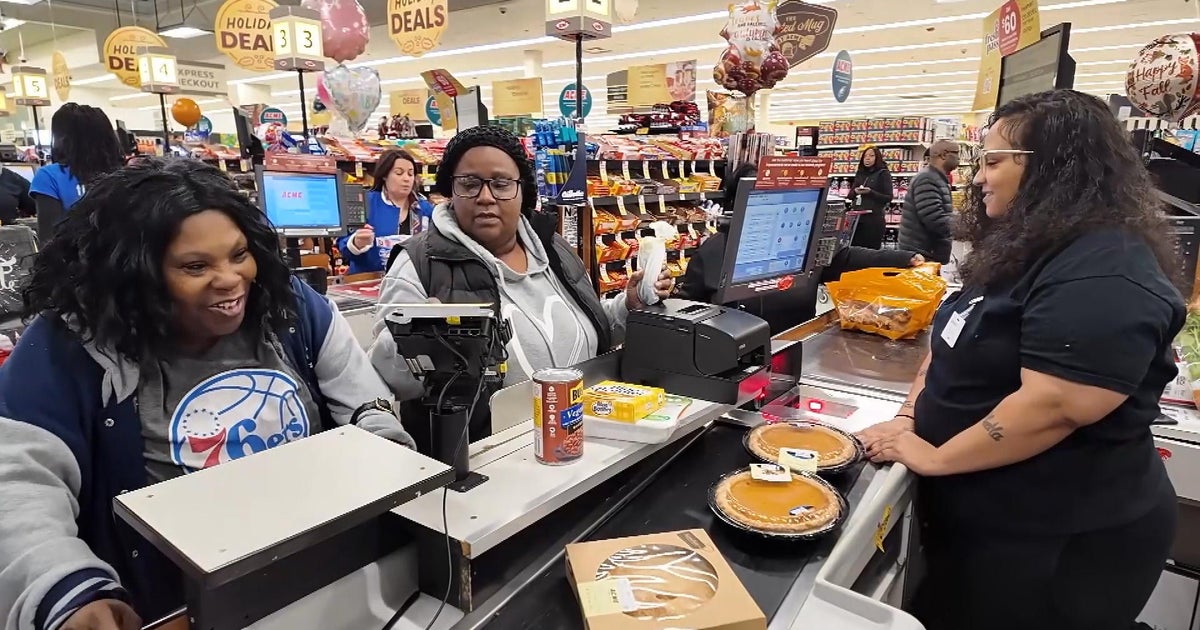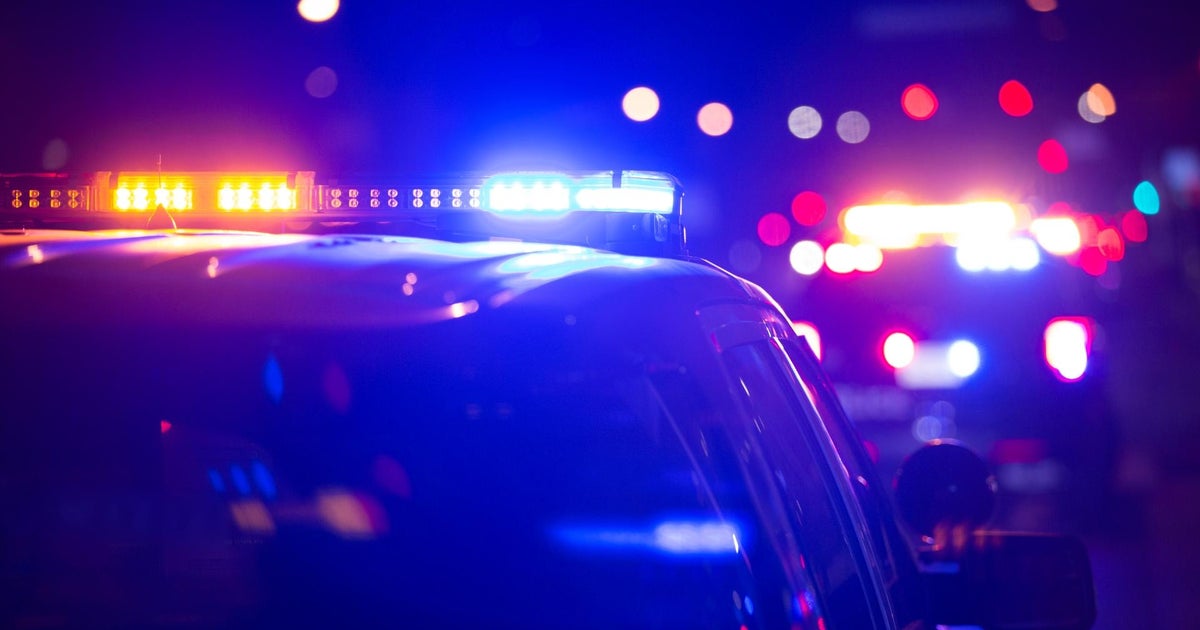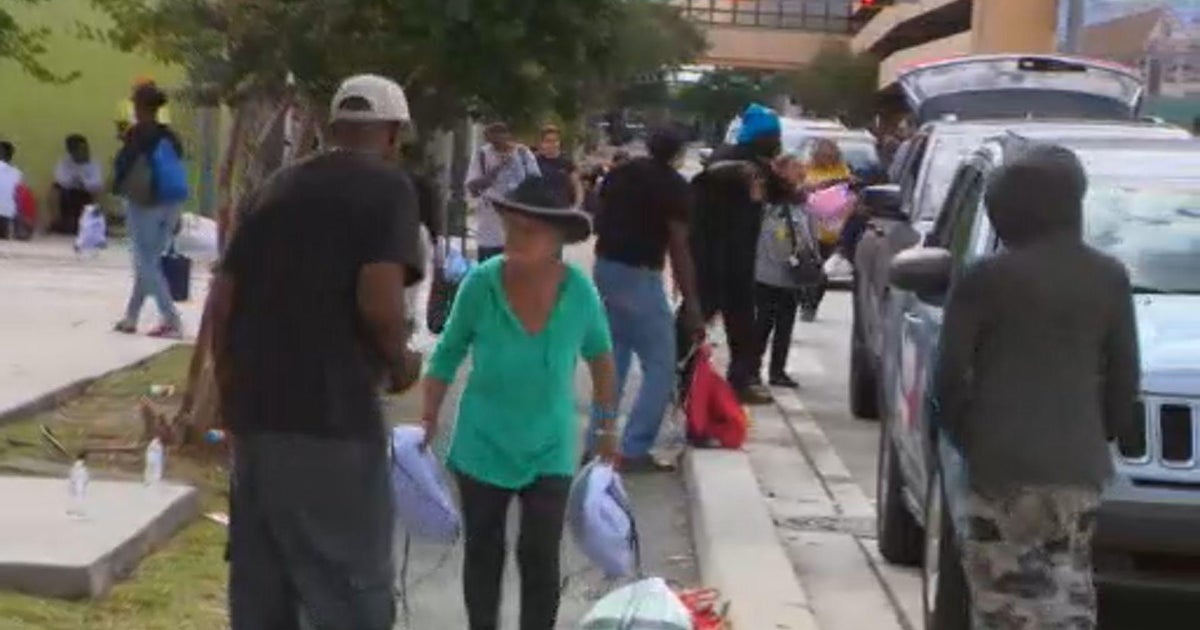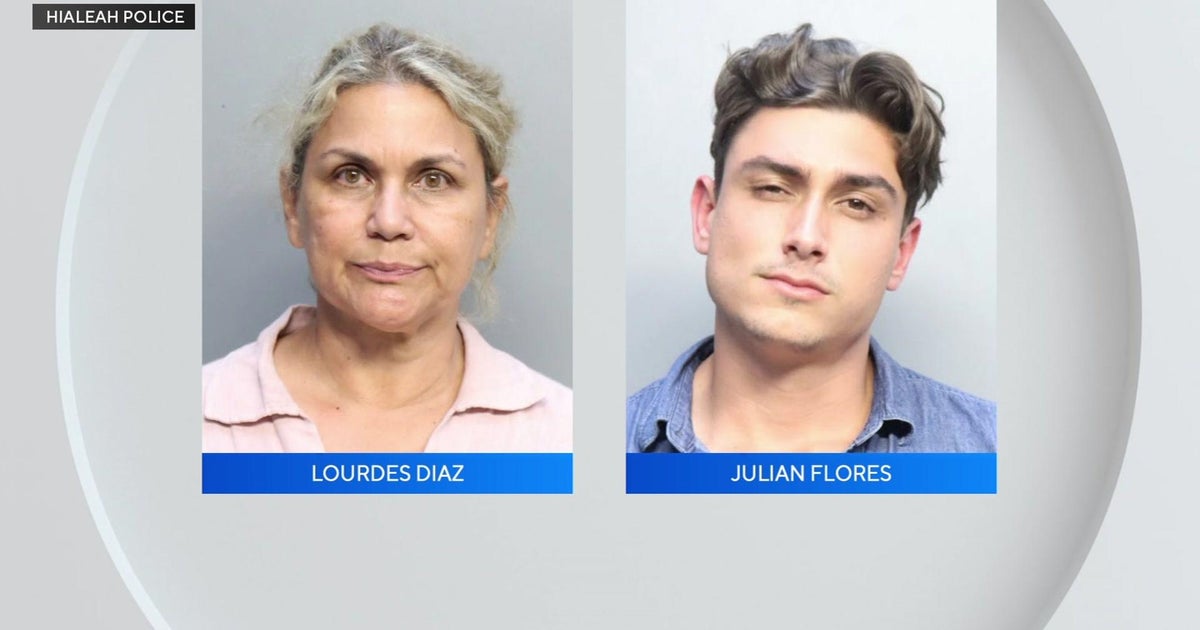CBS4 Investigates: Safe House Shuttered After Child Assaulted
MIAMI (CBS4) - A child sex trafficking victim, placed under the care of the Department of Children and Families, was raped just days after being sent to a newly opened Miami "safe house," CBS4 News has learned.
The "safe house" quietly closed after the April assault and child advocates say they are now rethinking their plans to house trafficking victims together in an unsecure group home setting.
"We need to regroup," admitted Gilda Ferradaz, the regional administrator for DCF in Miami. "We decided not to put any more kids into the safe house until these issues were resolved."
A state legislator who sponsored last year's bill creating the safe houses told CBS4's Jim DeFede he was unaware the house had been closed and dismayed to learn a child was assaulted.
"It's incredibly sad to me that this girl, that this child really, who had already suffered the trauma of being trafficked sexually went through the system and then for whatever reason ended up a victim again," said State Representative Erik Fresen.
Fresen's bill, House Bill 99: The Safe Harbor Act, was passed unanimously by the Legislature last year. Gov Rick Scott signed the law amid great fanfare during a bill signing ceremony in Miami.
"We must do everything possible to protect the victims of this detestable practice and offer them a chance for a healthy and safe future," Scott said.
Shortly afterward, Senator Marco Rubio and his wife toured what would be South Florida's first safe house and held a press conference afterward declaring it a significant advancement in the efforts to help victims of human trafficking.
But ten days after that safe house opened one of the girls wandered away from the house without supervision and was raped.
The assault, and a series of other incidents in which girls placed in the house ran away, prompted DCF to reconsider its approach.
"This is new to everybody," said Ferradaz, the DCF administrator. "The regular licensing, the regular training, isn't going to be enough for these kids."
CBS4 News has learned since The Safe Harbor Act went into effect, one other safe house was opened in Florida near Tampa. That house has also closed after experiencing similar problems. There are currently no safe houses operating in the state.
When the Safe Harbor law passed last year it was seen as a major step forward by child advocates.
A key component of the measure was recognizing that juvenile prostitutes are not criminals but rather victims of sexual exploitation who need to be treated outside the criminal justice system. The safe houses were designed as a place for the children to be housed while they received treatment and counseling.
The law was spearheaded by Kristi House – a non-profit agency that aids victims of child abuse in all its forms. The bill signing took place at Kristi House and joining the governor were Attorney General Pam Bondi, Fresen and an array of elected officials.
As soon as the law went into effect, Kristi House applied for a license to operate the safe house in South Florida. DCF granted them a license on March 15. Kristi House and the safe house opened its doors in a refurbished house in Little Haiti on April 1.
"These children have had psychological trauma that is incomparable to that of the regular foster system and as such it was recognized," Fresen said. "If we can create these kind of safe harbors, these kind of safe houses, that are particularly geared and staffed by folks that understand that kind of specific trauma associated with being sexually trafficked, we should try and promote that as much as possible."
"Let's find ways we can protect these children," said Frances Allegra, the CEO of Our Kids of Miami-Dade and Monroe, the agency DCF hired to oversee its foster and group homes. "These are girls that are in actual fear, not just for their own safety, but it is sort of like gangland style they are in fear for their entire family unit."
That fear makes them act irrationally. In some cases they want to run back to the pimps. And in some cases the girls would try to encourage or even "recruit" other girls to rejoin them going back to their pimps.
And it soon became obvious the safe houses were ill equipped to stop them.
The unintended consequence of treating them as victims - and not wanting to treat them as criminals - is the law doesn't allow DCF to keep them locked up inside the safe house. So the girls came and went as they pleased.
Allegra said they tried adding extra staff to the safe house, but the problems persisted. "After a while we realized the girls were still going to run," Allegra said. "They were not buying in."
Everyone was hoping the safe house would work.
"When you open new residential programs, especially for these tough populations, you find a lot of turmoil, a lot of chaos and a lot of experimentation," she said. "`Is this working? Let's try this.' This was a new model, it was new for Florida and it was new for Miami."
Trudy Novicki, the executive director of Kristi House, declined a request for an interview. Instead she issued the following statement:
"The Kristi House Short Term Safe House was opened after an extensive licensing process with DCF on April 1 under the Safe Harbor law, with the support of many legislators, advocates and major private funders. Six girls stayed at the house during its first 10 weeks, and our experience demonstrated that they liked being at the Safe House and built rapport with our staff."
The statement continued: "Based on conversations with DCF and Our Kids, we decided to suspend residential operations following incidents of the girls leaving the house without permission, although each returned voluntarily after a short time. Run-away behavior is expected during the recovery process for girls who have been victimized, and is a chronic issue among teenagers in foster care in general. While we are prohibited by law from discussing any particular case, client, or incident, it's important to know that we are taking the time to reassess the residential model and determine the best path forward to provide a safe environment and the intensive treatment needed for these children."
Although Kristi House's statement says the safe house remained open for ten weeks, Allegra said it only had girls in the shelter for "five or six" weeks and that a total of five girls went through the house before it closed.
Allegra and DCF say they are still committed to opening additional safe houses in South Florida. They say they will take this experience and try to build on it.
One lesson they learned, Allegra said, is that in retrospect, placing the safe house in Little Haiti may have been a mistake. The pimps soon discovered where it was and made it even harder to keep the girls safe.
Another issue that needs to be addressed: Should the safe houses be allowed to keep the girls and boys locked down inside the home.
State Representative Fresen said he would be willing to introduce a bill next year allowing involuntary confinement if the experts thought it was necessary.
"Maybe we have to look at whether or not we have to secure the house itself," Fresen said. "And even though we're trying to move away from the concept of imprisoning the child – maybe, for a certain period of time, they should be in a more secured, locked in environment."
It is a move that Allegra knows would be highly controversial.
"We all underestimated the power of that trauma bond [between the child and the pimp]," Allegra said. "That's why a lot of people who normally wouldn't be thinking this are now thinking maybe we should be able to restrain them, hold them, lock them up for a period of time until we can deprogram them."
"I don't know what the right thing to do is," she continued, "but my instincts are I want to do what I can to protect these children. I wish I had the tools necessary to protect these children. And if they are doing something that is dangerous then I should be able to protect them whether they want to buy into it or not.
"So should I be able to lock them up? A lot of advocates will hate me for saying that but what they are doing is threatening their lives and I would rather see a girl in a safe place where she can't leave than risking her lives on the street."
As child advocates debate what should happen next, the child victim who was raped when she ran from the safe house remains under state care.



